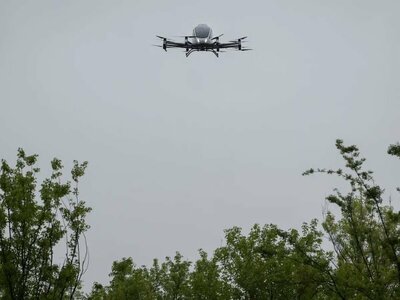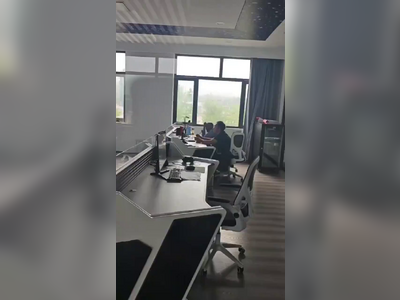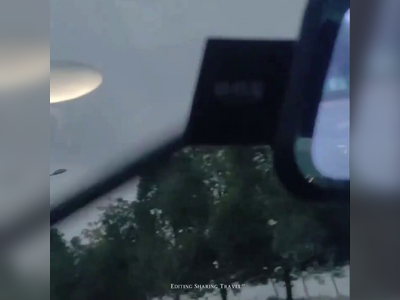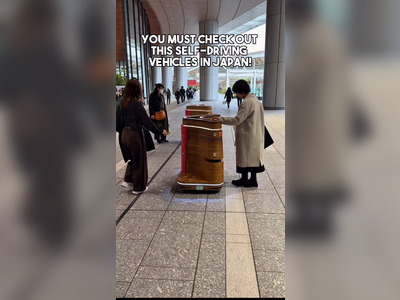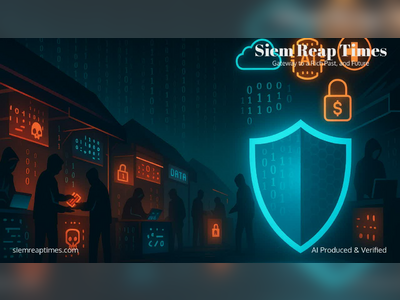Intense Drama in Seoul: Deposed South Korean President Taken Into Custody Following Standoff
The declaration of military rule by former President Yoon Suk-yeol, followed by his impeachment and arrest, has sparked political unrest in South Korea.
In an astonishing development, South Korean authorities have detained former President Yoon Suk-yeol after a tense confrontation at his Seoul home.
Yoon's contentious imposition of martial law and subsequent impeachment by parliament led to a dramatic police operation involving over 1,000 officers.
The arrest has sparked broad debate on political responsibility, constitutional law, and the vulnerability of South Korea's democracy.
The Prelude: Martial Law and Impeachment
Yoon Suk-yeol, once seen as a rising figure in South Korean politics, shocked the nation in December by imposing martial law.
Defending the decision as crucial for national security, Yoon accused opposition parties of destabilizing democracy.
However, this declaration was instantly condemned by lawmakers and civil society groups, who regarded it as an authoritarian overreach.
Within hours, parliament held an emergency session, voting unanimously to revoke the martial law order.
Under immense political pressure, Yoon withdrew the declaration but refused to resign.
By early January, parliament had officially impeached him, initiating a lengthy standoff.
The Arrest: A Dramatic Operation
After numerous failed attempts to serve an arrest warrant, law enforcement increased efforts on January 14. Police and anti-corruption investigators surrounded Yoon's residence, facing resistance from his presidential security and supporters, including 30 ruling party lawmakers who physically obstructed access.
To bypass the barricades, police used ladders to climb over buses and barriers placed strategically around the property.
Inside, Yoon eventually agreed to cooperate, stating, "I will comply with questioning to avoid bloodshed," while asserting that the arrest was unlawful.
Shortly thereafter, his motorcade headed to the investigation headquarters.
Public Reaction: Divided Opinions
The arrest has further divided South Korea's already polarized political scene.
Yoon's supporters gathered outside his residence, chanting and denouncing the impeachment as a politically driven attack.
Clashes erupted between Yoon's supporters and opponents, prompting police to intervene and disperse the crowds.
Opposition leaders welcomed the arrest as a positive step toward restoring constitutional order.
Park Chan-dae, leader of the Democratic Party, stated, "This marks the first step toward renewing democracy and the rule of law in South Korea."
Interim Leadership and Political Stability
Following Yoon’s impeachment, interim President Choi Sang-mok has worked to stabilize the nation amid growing tensions.
In a televised speech, Choi called for restraint and cautioned against conflicts between state agencies and political groups.
"We must prioritize national unity and avoid further escalation," he emphasized.
Choi’s leadership has received cautious support from opposition parties, but navigating the deeply divided political landscape remains a significant challenge.
Observers note that the interim government’s ability to handle the repercussions of Yoon’s arrest will be crucial for maintaining South Korea’s democratic stability.
Historical Context and Broader Implications
Yoon’s martial law declaration is a rare and controversial episode in South Korea’s modern history.
The country, which transitioned to democracy in the late 20th century after years of authoritarian rule, has faced occasional crises testing its institutional resilience.
Analysts suggest that Yoon’s actions reflect deeper political and social rifts, aggravated by economic difficulties and shifting geopolitical dynamics in the region.
South Korea’s dedication to democratic norms is likely to face scrutiny as the legal proceedings against Yoon progress.
The former president has vowed to challenge the charges, portraying himself as a defender of the nation against what he sees as "forces undermining its sovereignty." His supporters echo this sentiment, arguing that his impeachment and arrest were driven by partisan motives rather than legal grounds.
International Reactions
Yoon’s arrest has attracted international attention, with foreign governments and organizations closely monitoring developments.
While the U.S. State Department refrained from commenting on the specifics, it reiterated its support for South Korea’s democratic processes.
Regional neighbors, including Japan and China, have also expressed interest in the situation, considering South Korea’s strategic role in East Asia.
The events in Seoul have sparked discussions on the role of executive power and the mechanisms for holding leaders accountable in democracies worldwide.
Comparisons have been made to political crises in other countries, highlighting both the unique and universal aspects of South Korea’s current situation.
Looking Ahead
As Yoon Suk-yeol prepares to face questioning, South Korea stands at a crossroads.
The outcome of this high-profile case will likely shape the country’s political course for years to come, affecting public trust in institutions and setting precedents for future leadership transitions.
Yoon's contentious imposition of martial law and subsequent impeachment by parliament led to a dramatic police operation involving over 1,000 officers.
The arrest has sparked broad debate on political responsibility, constitutional law, and the vulnerability of South Korea's democracy.
The Prelude: Martial Law and Impeachment
Yoon Suk-yeol, once seen as a rising figure in South Korean politics, shocked the nation in December by imposing martial law.
Defending the decision as crucial for national security, Yoon accused opposition parties of destabilizing democracy.
However, this declaration was instantly condemned by lawmakers and civil society groups, who regarded it as an authoritarian overreach.
Within hours, parliament held an emergency session, voting unanimously to revoke the martial law order.
Under immense political pressure, Yoon withdrew the declaration but refused to resign.
By early January, parliament had officially impeached him, initiating a lengthy standoff.
The Arrest: A Dramatic Operation
After numerous failed attempts to serve an arrest warrant, law enforcement increased efforts on January 14. Police and anti-corruption investigators surrounded Yoon's residence, facing resistance from his presidential security and supporters, including 30 ruling party lawmakers who physically obstructed access.
To bypass the barricades, police used ladders to climb over buses and barriers placed strategically around the property.
Inside, Yoon eventually agreed to cooperate, stating, "I will comply with questioning to avoid bloodshed," while asserting that the arrest was unlawful.
Shortly thereafter, his motorcade headed to the investigation headquarters.
Public Reaction: Divided Opinions
The arrest has further divided South Korea's already polarized political scene.
Yoon's supporters gathered outside his residence, chanting and denouncing the impeachment as a politically driven attack.
Clashes erupted between Yoon's supporters and opponents, prompting police to intervene and disperse the crowds.
Opposition leaders welcomed the arrest as a positive step toward restoring constitutional order.
Park Chan-dae, leader of the Democratic Party, stated, "This marks the first step toward renewing democracy and the rule of law in South Korea."
Interim Leadership and Political Stability
Following Yoon’s impeachment, interim President Choi Sang-mok has worked to stabilize the nation amid growing tensions.
In a televised speech, Choi called for restraint and cautioned against conflicts between state agencies and political groups.
"We must prioritize national unity and avoid further escalation," he emphasized.
Choi’s leadership has received cautious support from opposition parties, but navigating the deeply divided political landscape remains a significant challenge.
Observers note that the interim government’s ability to handle the repercussions of Yoon’s arrest will be crucial for maintaining South Korea’s democratic stability.
Historical Context and Broader Implications
Yoon’s martial law declaration is a rare and controversial episode in South Korea’s modern history.
The country, which transitioned to democracy in the late 20th century after years of authoritarian rule, has faced occasional crises testing its institutional resilience.
Analysts suggest that Yoon’s actions reflect deeper political and social rifts, aggravated by economic difficulties and shifting geopolitical dynamics in the region.
South Korea’s dedication to democratic norms is likely to face scrutiny as the legal proceedings against Yoon progress.
The former president has vowed to challenge the charges, portraying himself as a defender of the nation against what he sees as "forces undermining its sovereignty." His supporters echo this sentiment, arguing that his impeachment and arrest were driven by partisan motives rather than legal grounds.
International Reactions
Yoon’s arrest has attracted international attention, with foreign governments and organizations closely monitoring developments.
While the U.S. State Department refrained from commenting on the specifics, it reiterated its support for South Korea’s democratic processes.
Regional neighbors, including Japan and China, have also expressed interest in the situation, considering South Korea’s strategic role in East Asia.
The events in Seoul have sparked discussions on the role of executive power and the mechanisms for holding leaders accountable in democracies worldwide.
Comparisons have been made to political crises in other countries, highlighting both the unique and universal aspects of South Korea’s current situation.
Looking Ahead
As Yoon Suk-yeol prepares to face questioning, South Korea stands at a crossroads.
The outcome of this high-profile case will likely shape the country’s political course for years to come, affecting public trust in institutions and setting precedents for future leadership transitions.








